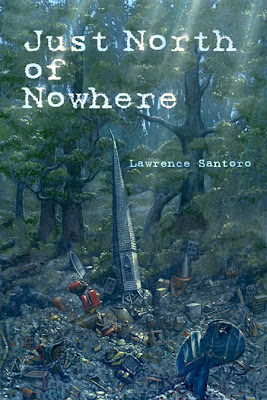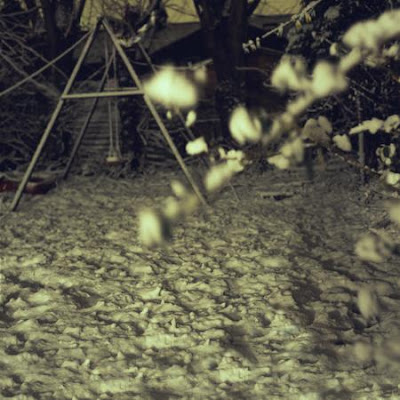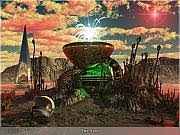
I ask if you are listening because if you're not, we've pretty much had it.
Ever since you began thinking of yourselves as "consumers" -- data points in corporate spread sheets -- and not "customers" -- individuals whose business is valued by the company with whom you are dealing, ever since the corporatocracy and its handmaiden, the Republican Party, began to disassemble the middle class using Ronald Reagan's smiling, confident bullshit popularity to toss you a few bones while the button counters were stealing your lives, ever since you let wedge-issues define your beliefs and let slogans be your voice...ever since we stopped thinking, ever since we decided to be just comfortable...we have been turning our souls over to the corporation. You see? If you're not a data-point, if you're not a consumer, if you're not a smiling, happy, contented mass of millions swilling what you're fed, then you are a problem. You ask too many questions, you want too much, you are not content to live in the gutter and go fight the wars that you're told to fight. You are a problem if you're not just a data-point.
You may not be a member of a union, but in very real ways, the struggles of labor to organize, to demand the right to bargain collectively with the owners, have elevated your lives. Those struggles, those victories gained through bloodshed, violence, intimidation, helped create a middle-class that was the envy of the world.
The fight in Wisconsin is not about saving state money, it's not about balancing a state budget -- on the backs of the middle class, where such budgets are always balanced -- it is about this governor, those corporate interests taking on and crushing the union.
A good friend of mine, Gary Houston, maintains an ad hoc blog-by-mail in which he shares news, information, and passion. This was posted yesterday. Bob Clarke is an acquaintance...his self-taken photo is at the bottom.
Bob Clarke writes:
Yesterday, somewhat on impulse, I hopped in my car and drove to Madison - under three hours from Chicago. I arrived about 5 PM and parked easily on Washington Ave. (Route 151), about two blocks below the Capitol building. There was a rally (one among many over these days) scheduled for that time, in this case to coincide with a particularly repugnant 6 PM speech by Gov. Walker (see below for the prank call yesterday.)
Signs supporting the movement of resistance to the attack on unions greeted me from bars, restaurants, and houses on Capitol hill. But in the early dark, I was somewhat disappointed by the paucity of people on the grounds, though there were media vehicles everywhere and two huge Teamster-union trucks. I followed a trickle of people with picket signs right into the building: no police at door, no metal detectors, no impediment of any kind.
As soon as I approached the impressive rotunda - under the only granite dome in America, finished 1917 - I realized from the beat of drums and the roar of the huge crowd that thousands of people had indeed taken possession of this physical citadel of legislative power. As you'll have seen in the countless media reports, the whole place is bedecked in banners and signs defending workers' rights and denouncing the governor and his Republican legislative majority. The protesters are a mix of blue collar and white collar union workers (of course many teachers) and their families, predominantly white but with a good-sized black presence, university students, and other sympathizers. Particularly popular were contingents of police and firefighters (in full regalia) supporting the protest even through Gov. Walker has exempted their unions from his proposal to end public-union bargaining rights.
Punctuated by stirring union songs, especially "Solidarity Forever," various speakers held forth, some hardly audible, while TV monitors showed the governor, totally drowned out by cries of "Kill the Bill." I felt galvanized by the sense of determination and anger, by the dawning realization that these protesters are there around the clock, many of them spending the night in sleeping bags on the floors of various levels of the building - often doing homework on their laptops. Free food and supplies are abundant; there is an unending flow of pizza deliveries - take what you want. Everything well organized and peaceful. In a committee room high up toward the dome, dozens of striking U. of W. teaching assistants staff a "situation room" where they manage the logistics of the occupation. To them I handed a donation that friends the Kriegers sent from Washington state.
Because it's Madison the free candy bars are of organic fair-trade chocolate. Because it's Wisconsin there is a statue of Bob LaFollette, surrounded by placards and backpacks of students who may never have heard of him until now. When I asked one cherubic young man who was standing against a marble wall knitting whether he was Madame DeFarge, he answered, "No, I'm an alcoholic, knitting helps me stay sober." He may never have read Dickens, but he wants to fight injustice and oppression.
Students who want to spend the night can walk the few blocks up State Street from the university campus to the Capitol. They were still arriving when I left at 11 PM. One trio I talked to had a rainbow quality: a Vietnamese girl who left that country at age 3, an African-American girl from U. of Wisconsin/LaPorte, and a WASP boy - all had a sense of the historic resonance of their action and and said they're in it for the long haul. When I told them I remembered the Vietnam war protests in Madison, they nodded but probably thought I was a revenant from ancient history. The Vietnamese girl appeared to be about twenty, and 1968 was, after all, 43 years ago!
State troopers were present but not threatening. A newspaper report today says they are more numerous than before; but it's hard to imagine that they could stand up to that crowd. If they got orders to clear the place, they would surely try it late at night when the numbers of protesters are relatively low. (The deputy Attorney General of Indiana was relieved of his duties today for suggesting that they open fire on the demonstrators - perhaps taking his inspiration from Colonel Gaddafy.)
There is supposed to be a massive march and demonstration tomorrow; and this part of the struggle seems likely to continue for some time.
Some useful links:
Yesterday's incredible phone prank, surpassing even my greatest exploits in this challenging sport:
By RYAN J. FOLEY, Associated Press Ryan J. Foley, Associated Press – 1 hr 32 mins ago
MADISON, Wis. – A prank caller pretending to be billionaire conservative businessman David Koch was able to have a lengthy conversation with Wisconsin Gov. Scott Walker about his strategy to cripple public employee unions, the governor's office confirmed Wednesday.
On the call, Walker joked about bringing a baseball bat to a meeting with Democratic leaders, said it would "be outstanding" to be flown out to California by Koch for a good time after the battle is over, and said he expected the anti-union movement to spread across the country.
[Related: What is a right-to-work law?]
Audio was posted on the Buffalo Beast, a left-leaning website based in New York, and quickly spread across the Internet.
Democrats ripped Walker's comments on the call on the Assembly floor Wednesday morning, saying they had nothing to do with his assertion that legislation stripping public employees' collective bargaining rights is needed to help solve a looming budget deficit.
[Related: First person: Wis. budget bill threatens my family]
"That's why we must fight it! That is why people must come to the Capitol and fight this!" Rep. Jon Richards of Milwaukee yelled as thousands of protesters inside the rotunda roared in approval. "This isn't about balancing the budget, this is about a political war."
Walker spokesman Cullen Werwie confirmed Walker took the call, which will only heighten widespread suspicions that brothers David and Charles Koch are pulling strings in Wisconsin's battle as part of a conservative agenda to limit the unions' power.
[Related: What is a labor union?]
The governor's plan would take away the ability of state and local public employees to collectively bargain for working conditions, benefits, or any other than their base salaries. Unions could not collect mandatory dues and would face a vote of its members every year to stay in existence.
The plan has set off more than a week of demonstrations at the Capitol, and prompted Wisconsin Senate Democrats to flee the state to block its passage. Similar ideas are being pushed in some other states with Republican governors.
The man pretending to be Koch said, "You're the first domino."
"Yep, this is our moment," Walker said.
The brothers own Koch Industries, Inc., which is the largest privately-owned company in America and has significant operations in Wisconsin. Its political action committee gave $43,000 to Walker's campaign, and donated heavily to the Republican Governors' Association, which funded ads attacking Walker's opponent in last year's election.
[Related: History of stalling tactics in politics]
The Kochs also give millions to support Americans For Prosperity, which launched a $320,000 television ad campaign in favor of Walker's legislation on Wednesday and already has a website, standwithwalker.com, where more than 60,000 have signed a petition supporting his plan.
On the call, Walker talks about speaking with Democratic Sen. Tim Cullen, one of the Democrats hiding in Illinois to stop the bill, and telling Cullen he would not budge. After Walker said he would be willing to meet with Democratic leaders, the caller said he would bring "a baseball bat." Walker laughed and responded that he had "a slugger with my name on it."
The caller suggested he was thinking about "planting some troublemakers" among the protesters, and Walker said he had thought about doing that but declined. Walker said the protests eventually would die because the media would stop covering them.
At the end of the call, the prankster says: "I'll tell you what Scott, once you crush these bastards, I'll fly you out to Cali and really show you a good time."
[Related: Largest labor unions in the U.S.]
"Alright, that would be outstanding. Thanks for all the support and helping us move the cause forward. We appreciate it and we're doing the just and right thing for the right reasons and it's all about getting our freedoms back," Walker said.
The caller: "Absolutely. And you know, we have a little bit of vested interest as well" and laughs.
"That's just it. The bottom line is, we're going to get the world movement here because it's the right thing to do."
Walker ends the call by saying, "thanks a million."
Cullen called the call an "astounding confirmation of what we've been saying for a couple weeks now."
"This bill is about the money," he said. "This bill is about destroying public employee unions."
Cullen said he felt the call "displays a level of partisanship and pettiness on the side of the governor I don't think is going to sit well with the public."
Werwie, the governor's spokesman, said the phone call "shows that the governor says the same thing in private as he does in public and the lengths that others will go to disrupt the civil debate Wisconsin is having."
How to help the protesters:
THE BATTLE FOR UNIONS IN WISCONSIN
HOW YOU CAN HELP
Folks from outside Wisconsin are contacting me and asking
how to help with the battle to save collective bargaining
for public employees in Wisconsin. (Additional information
on the current status of things here is at the end of this
letter.)
YOU CAN PROVIDE FINANCIAL SUPPORT
People of generally modest means, including many college
students, are continuing the occupation of the Capitol and
the daily picketing in resistance to the Governor's plans.
Most teachers have had to/have chosen to return to their
classrooms, but many other union members remain, people
from private sector unions and public unions including
police and firefighters.
There are many private citizens, often seniors. Those
remaining in the capitol and on the picketlines need food,
water, transportation, housing. The Wisconsin AFL-CIO is
coordinating much of that support. No matter how small,
financial support is welcome:
ONLINE: The AFL-CIO is accepting donations online through
PayPal or any major credit card. Please go to
http://wisaflcio.org ; for the link.
CHECKS can be made payable to the
Wisconsin State AFL-CIO Defense Fund,
6333 W. Blue Mound Rd., Milwaukee, WI 53213
(Please indicate the purpose, e.g. "Capitol protests" or
"Madison rally", on your check.)
* * * *
SEND FOOD AND WATER DIRECTLY TO THE PROTESTERS
These two close-by shops will supply food and water to
those in the Capitol or on the picket line:
Ian's Pizza 608-442-3535 minimum order $20.00 These
folks are now taking orders only for delivery to the
resistance, they've stopped all delivery to the general
public. They tell me they deliver to wherever the people
are -- if they're inside the Capitol, they go in. If
people are marching and picketing, they take the food to
the picket line.
Subway on the Square 608-255-1636 NOTE: minimum order
$100.00 They have set up a fund there for your orders,
and they are giving free food from that fund to any union
member or pro- union demonstrator who requests food.
Thank Pat for arranging that, I'm sure this is the first
time they've done anything like this.
Here are some photos I took: not as good as what you can see on TV, but with some details that might be of interest.




 Since the release earlier this month of "Drink for the Thirst to Come," the collection has been gathering some very nice comments from other writers. I wanted to excerpt and post a few here.
Since the release earlier this month of "Drink for the Thirst to Come," the collection has been gathering some very nice comments from other writers. I wanted to excerpt and post a few here.























